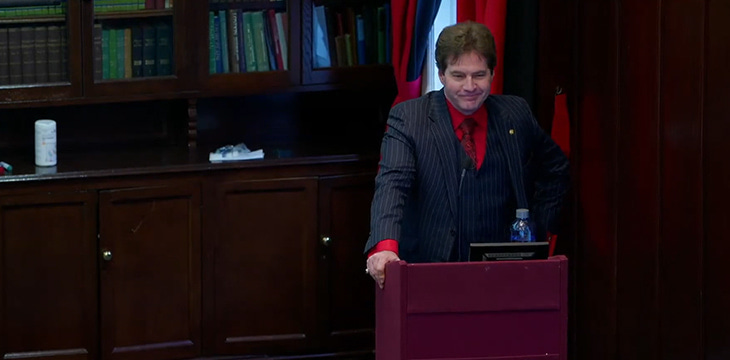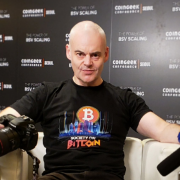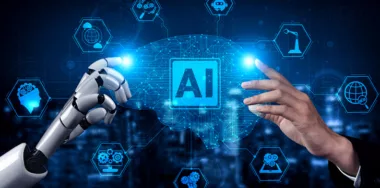When do we need confidentiality and privacy, and how do we restrict access only to the people who need the information? Having examined the more philosophical issues around confidentiality in the previous two sessions, Dr. Craig Wright continues his “The Bitcoin Masterclasses” series with real-life examples of how to make the Bitcoin blockchain very useful in the Big Data world.
This is the third session of Dr. Wright’s two-day tutorial series in London, where he delves deeper into examples and use cases for confidentiality. Video recordings of the Day One sessions are here and worth watching in full.
Confidentiality is “un-linking” the identity from the information, but not completely. The link does not disappear completely (as with anonymity). One common example is a journalist who doesn’t name sources in a published article but must keep private records of those sources for others to verify their statements if needed (at least in theory). Dr. Wright gives examples of medical research and records and voting in elections. All these examples have struggled with balances of confidentiality and auditability in the past.
“What we need is a methodology to isolate identity, and use something like a zero-knowledge proof (ZKP) to prove that the record is correct, link it but not have identity attached.”
Dr. Wright describes voting and elections as “a fun problem,” even for blockchain-based systems. How can you prove you voted and verify who that vote was for without third parties knowing? Additionally, you should not be able to reveal your vote to others either since that invites potential corruption. There are numerous ways for this information to leak, intentionally and unintentionally.
Then there’s medical research. What’s to stop researchers from running experiments on select groups and publishing only the results that support their hypothesis? Can we ever know the number of results that didn’t support it, as well as the exact methodology and complete data to replicate the experiments?
“How many people have looked into records of psychology experiments from the 1970s, and realized many of them didn’t really happen? There’s a lot of them.”
There are examples in everyday commerce: Amazon (NASDAQ: AMZN) needs to know what item you purchased and possibly whether you’re an individual or a business. However, only their delivery courier needs to know your exact address. That courier doesn’t need to know what you purchased. What if there’s a product recall, and Amazon needs to contact everyone who purchased a certain item?
Dr. Wright also lists other use cases based on his extensive experience in security systems. Company shares, tax records and business activities, witness protection programs, prescriptions, even web searches, and social networks—all have examples where information is required for practicality or data-gathering but where links to personal identity shouldn’t be open.
There are problems with too much personal data being collected, but also with too little. When it’s the latter, it’s usually due to sloppy record-keeping or a desire to maintain privacy simply by not knowing.
With the Bitcoin network, it is possible to gather and record all necessary information while keeping details on a need-to-know basis only. Currently, most of this information is kept non-confidentially by Silicon Valley tech giants, and that’s causing problems.
“There’s a reason they’re not going to like this,” Dr. Wright admits since Bitcoin’s model returns data ownership and power over that data to the user. “One thing Silicon Valley hates is competition.”
Imagine if you have one “Twitter identity,” but there are multiple Twitters you could port it to. Or if you could see four doctors and obtain four different prescriptions while knowing your medicines won’t react badly when combined.
It’s important to realize that mass data collection has advantages for users and the general public as well—or at least, it could. Rather than enabling the powerful to gain more power with lip service to the public good, as it currently does, Big Data could actually improve society. However, all this requires a fast and scalable blockchain like Bitcoin SV (BSV)… and talented developers.
nChain Director of Research Owen Vaughan launches this session with a call for interested developers to check out nChain’s R&D careers page. If these Masterclass sessions pique your curiosity, it’s worth taking a deeper look.
Watch: The Bitcoin Masterclasses Day 2: Private Identity, Identity Proofs & Topic Reviews
New to blockchain? Check out CoinGeek’s Blockchain for Beginners section, the ultimate resource guide to learn more about blockchain technology.










